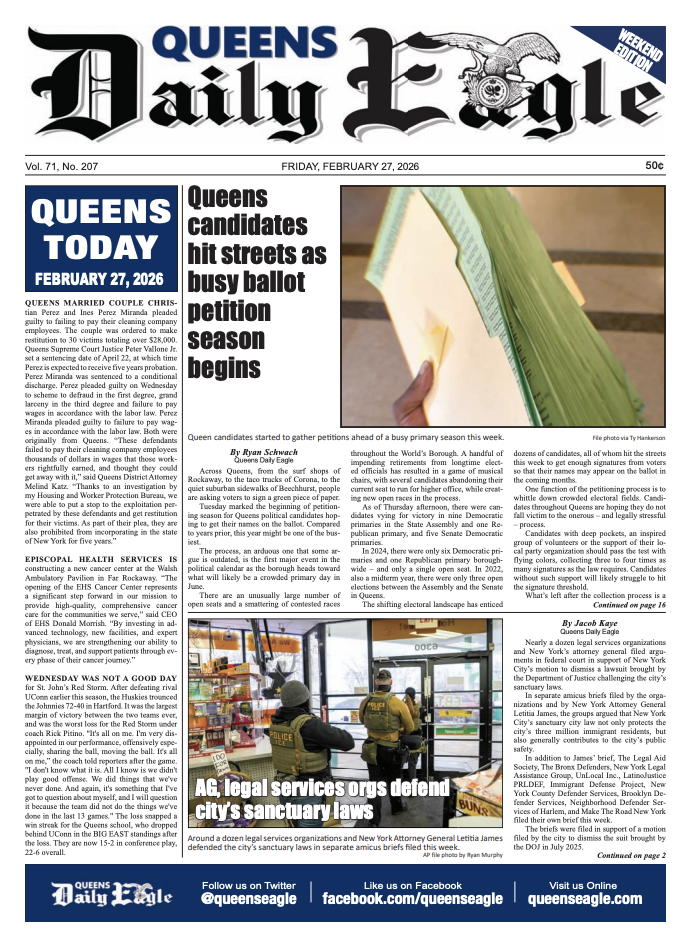Council member continues fight against RCV post-election
/City Councilmember I. Daneek Miller has continued his fight against ranked-choice voting post-election. Photo by William Alatriste/City Council Photography
By Jacob Kaye
As New York City waits for the highly anticipated results of the 2021 primary elections, City Councilmember I. Daneek Miller has renewed his call to get rid of ranked-choice voting.
“For now, the cumbersome process of waiting for the results of a ranked choice voting election has begun,” Miller said. “During this period, it is important that government remain responsive to the concerns expressed by voters regarding the confusing implementation of ranked choice voting, and now the protracted timeframe for results.”
Miller has railed against the implementation of the new voting system, which allows voters to rank their top five candidates in order of preference, in the past.
Late last year, the council member was joined by Councilmember Adrienne Adams and a handful of others in a lawsuit against the city. The pols said the Board of Elections hadn’t done its part, as mandated by the City Charter, to educate voters in the lead up to the special election in District 24 – the first in the city to use RCV – and ultimately, this week’s primary.
The lawsuit was struck down in court.
Several weeks before the primary, Miller introduced legislation in the City Council to put RCV up for a revote in November.
“New Yorkers deserve a chance to weigh in on whether they find this acceptable, and if ranked choice voting and the confusion it has spurred is eroding their confidence in our democracy,” Miller said.
RCV passed as a ballot measure in 2019, receiving over 70 percent of the vote. Miller says that he’d rather RCV be on the ballot during an election that expects to see high voter turnout, like this November, where more voters can have a say on the practice.
Despite Miller’s claims, voters who spoke to the Eagle on primary day expressed little concern over RCV and its implementation.
“The ranked-choice seemed scary but once I got in there it was pretty easy," said Juliano Kamalic, an 80-year-old voter in Astoria.
Voters said that they not only found it easy to do but that they preferred it over picking only one candidate.
"It means you don't have to compromise,” said Christopher Jacobs-Briggs. “If you are stuck deciding between two candidates, you aren't as afraid to take a risk on someone you believe in."
While tabulating RCV ballots takes longer than it’s one-choice alternative, it’s not the only factor slowing down the results. The Board of Elections is waiting on tens of thousands absentee ballots – in Queens alone – to arrive. The ballots aren’t due until a week after June 22 and voters have been given additional time to fix any errors that may invalidate their ballot after its arrival at a BOE facility.
On June 29, the BOE will release preliminary, unofficial results based on RCV tabulation of the in-person ballots. The count won’t include absentee ballots. On July 6, the BOE will complete and release an updated tally including the absentee ballots received at that point.
About a week later, on July 12, the BOE expects to release and certify the results of the primary election.




